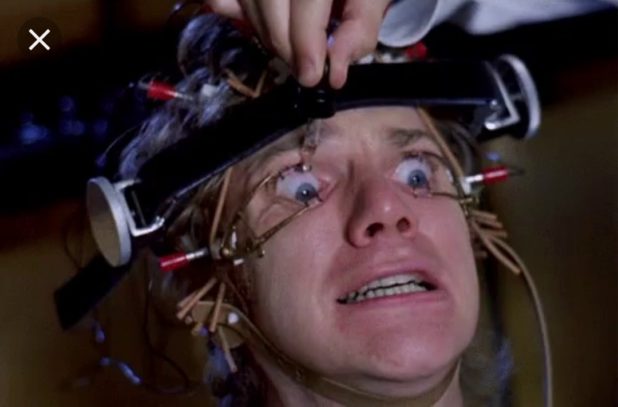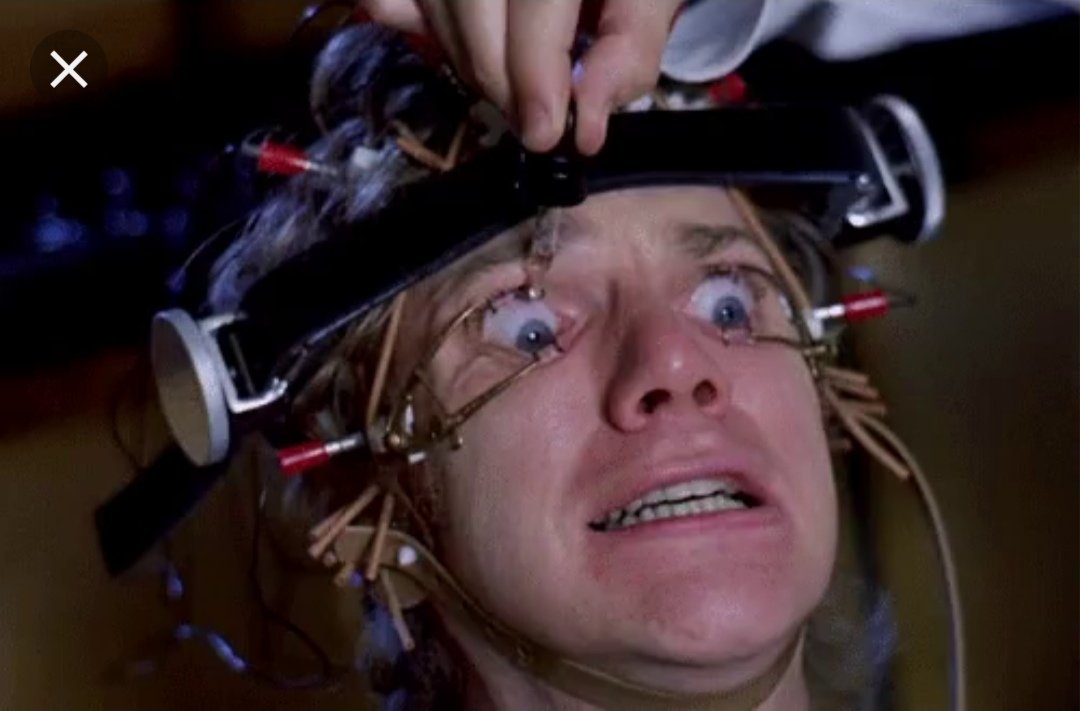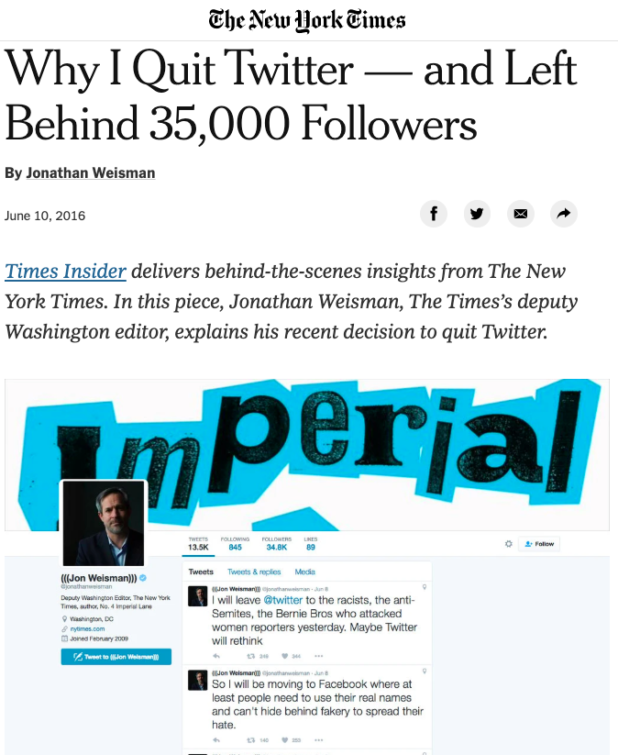Andrew Anglin
Daily Stormer
March 3, 2020

One of the shocking things about online censorship is the fact that the main group advocating that independent media be silenced is the mainstream media. In fact, that in itself isn’t really shocking, and it is actually exactly what you would expect. What is shocking is the brazen way in which they run these campaigns demanding censorship, and the fact that no one seems to be particularly concerned about this kind of open corruption.
The New York Times was a leading force in pushing for the Daily Stormer to be censored.
They then played a major role in the campaign to censor Alex Jones.
After that, they pushed the agenda to censor 8chan.
During these campaigns for specific people to be censored, they were also pushing for platforms to censor entire swaths of people.
They were the biggest group behind the decision of Twitter to start “hate speech” censorship, because Jews’ feelings were being hurt. It was after their columnist Jonathan Weisman wrote a disgusting and emotionally manipulative piece complaining about his emotions when people called him a kike that Twitter first began massively wiping out accounts in 2016.
And they also did a major campaign against YouTube, claiming that people were being “radicalized” by the site’s algorithm. Their article, “The Making of a YouTube Radical,” resulted in the single biggest cleansing of YouTube ever.
It should be no surprise to anyone that their latest campaign is to cleanse YouTube of “conspiracy theories.”
This is yet another blanket term that allows them to demand the banning of all different kinds of material, under the claim that it is “disinformation.”
Published on Monday, “Can YouTube Quiet Its Conspiracy Theorists?” is another barely veiled demand that YouTube start banning everything they say to ban.
CLIMATE CHANGE IS A HOAX, the Bible predicted President Trump’s election and Elon Musk is a devil worshiper trying to take over the world.
All of these fictions have found life on YouTube, the world’s largest video site, in part because YouTube’s own recommendations steered people their way.
For years it has been a highly effective megaphone for conspiracy theorists, and YouTube, owned and run by Google, has admitted as much. In January 2019, YouTube said it would limit the spread of videos “that could misinform users in harmful ways.”
One year later, YouTube recommends conspiracy theories far less than before. But its progress has been uneven and it continues to advance certain types of fabrications, according to a new study from researchers at University of California, Berkeley.
YouTube’s efforts to curb conspiracy theories pose a major test of Silicon Valley’s ability to combat misinformation, particularly ahead of this year’s elections. The study, which examined eight million recommendations over 15 months, provides one of the clearest pictures yet of that fight, and the mixed findings show how challenging the issue remains for tech companies like Google, Facebook and Twitter.
The researchers found that YouTube has nearly eradicated some conspiracy theories from its recommendations, including claims that the earth is flat and that the U.S. government carried out the Sept. 11 terrorist attacks, two falsehoods the company identified as targets last year. In June, YouTube said the amount of time people spent watching such videos from its recommendations had dropped by 50 percent.
Yet the Berkeley researchers found that just after YouTube announced that success, its recommendations of conspiracy theories jumped back up and then fluctuated over the next several months.
The data also showed that other falsehoods continued to flourish in YouTube’s recommendations, like claims that aliens created the pyramids, that the government is hiding secret technologies and that climate change is a lie.
The term “conspiracy theory” is so vague that it can include anything at all that is not the official position of the Jews, the government and the New York Times. Everything from very widely held views, such as that JFK was not killed by a lone gunman, to extremely fringe things, like the earth being flat or that all female actresses are secretly trannies.
But the view of the New York Times – which they express by hiding behind “Berkeley researchers” – is that anything they disagree with needs to be shut down.
The researchers argue those findings suggest that YouTube has decided which types of misinformation it wants to root out and which types it is willing to allow. “It is a technological problem, but it is really at the end of the day also a policy problem,” said Hany Farid, a computer science professor at the University of California, Berkeley, and co-author of the study.
“If you have the ability to essentially drive some of the particularly problematic content close to zero, well then you can do more on lots of things,” he added. “They use the word ‘can’t’ when they mean ‘won’t.’”
The article goes on to talk about the algorithm and how it needs to be shut down so that no one is ever exposed to content that comes from anywhere other than them and their fellow Jews.
It’s pretty much the exact same article as the “Making of a YouTube Radical” piece, where they say it is dangerous for people to think about these things, and if they see these things, they can’t help but believe it.
I am of course a free speech absolutist, and think this is just pure evil.
What is incredible however is that the New York Times believes in democracy, but at the same time says that the masses of people are totally incapable of determining reality from falsehood, and thus must have all information they are exposed to regulated by authorities.
How can it be that the masses of people are so intelligent and enlightened that they are capable of deciding who runs the government, but so infantile that they have to be shielded from information that the New York Times finds objectionable, or they will start believing in insane theories?
Both things cannot simultaneously be true.
Either:
- People are capable of viewing all information and drawing their own conclusions about what they believe to be true, or
- People are incapable of determining reality from falsehood, and thus they should not be allowed to participate in government
I have made this point so many times, and the establishment will never answer for it. They claim that you have to protect people from accessing information that they find objectionable, or it hurts democracy.
Of course what this means is that they know that people cannot determine truth from falsehood, and they simply want total control over what information the people have access to so that they can manipulate them into voting how they want them to vote.
A democracy can be defined as “rule by the media.”
The correct view is of course the opposite: let people think whatever they want to think, but don’t let them participate in government.
This is why you have so much more freedom of expression in a place like China than in America. Because they don’t have any need to control the views of the population, as they don’t need to control their votes.
I believe in some conspiracy theories and others I think are retarded, but the idea that the New York Times should have the right to dictate what you can and can’t think is surely not a popular position. Just how stupid are people that they think a major article like this is just them reporting on what some random “Berkeley scientist” thinks, and not a demand to silence freedom of speech on the internet?







